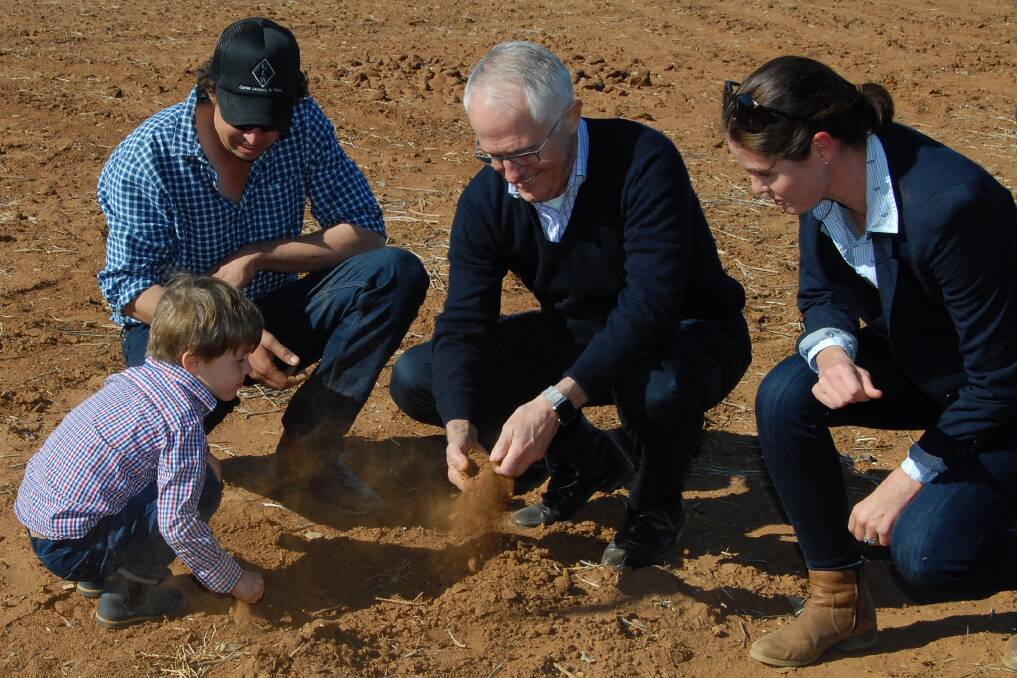
Federal MP Meryl Swanson has praised Prime Minister Malcolm Turnbull for stepping onto the farm to listen to drought-stricken farmers.
Subscribe now for unlimited access.
or signup to continue reading
And she has been quick to emphasise that the ‘listening tour’ must transform into support measures, and fast.
It comes after she went into the federation chamber at federal parliament last week armed with the Mercury’s article about the trying conditions farmers across the state are enduring.
She raised facts from the article in front of Agriculture and Water Resources Minister David Littleproud.
Read more: Hell on earth, drought takes its toll across NSW
Read more: How you can help our farmers
“I raised those issues that you raised with me in terms of people destocking and having to shoot animals, and animals being sold for less at Maitland saleyards,” she said.
We need a two pronged approach – farmers need some sort of assistance right now and then the government honestly needs to work out what we are going to do in the medium and long term because we are seeing more sporadic weather conditions.
Mr Turnbull seems to agree about the weather conditions.
He dropped into his own property in the Upper Hunter on the weekend; posting a photo on Instagram of himself shoveling cotton seed out of a trailer for his cattle against a dusty backdrop.
He met with Upper Hunter Shire Council general manager Steve McDonald before heading west to embark on a three-day tour of drought-stricken areas including Dubbo, Narromine, Trangie and Queensland towns Blackhall, Charleville and Boulia.
Mr Littleproud, Deputy Prime Minister and nationals leader Michael McCormack, Regional Development Minister John McVeigh and Rural Health Minister Bridget McKenzie joined him for parts of the tour.
At a press conference in Trangie on Monday Mr Turnbull said he was learning a lot from the farmers he was meeting, including a few long-timers he spoke to at a pub in Murrurundi.
“The important thing for people in regional and rural Australia to know is that we understand how big a challenge this is, we really do, and we are out here listening,” he said.
“Our job is to listen, to learn and then to make sure we provide the support we can.”
Mr Turnbull said rainfall seemed to be becoming even more variable – especially in the Hunter and central west – and that brought many management challenges.
“If you have a seven-year drought or you have years of drought no-one’s really going to be able to store enough hay to cover that.”


